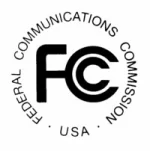It is time again for the best technology events of the year. We have quite a lineup this year, including Sony, Aereo, net neutrality, Home Depot, and a few surprise guest stars.
As with prior years, the winner had to do something in the calendar year. The action had to involve information and communications technology. It had to be notable. And, finally, the award winner has to contain something that deserves a snarky remark. This is nothing to take seriously, and it is all in good fun.
 As in past years, The winners of these awards win nothing at all except a little sarcasm and a bit of fleeting attention on this humble blog. There is a symbolic award. It is called a “Sally.” This is named for Sally Fields, who famously blurted out at the Academy Awards “You like me! You really like me!” Why is a technology award named for her even though she has no accomplishments in technology? Well, why not? The stakes are very low.
As in past years, The winners of these awards win nothing at all except a little sarcasm and a bit of fleeting attention on this humble blog. There is a symbolic award. It is called a “Sally.” This is named for Sally Fields, who famously blurted out at the Academy Awards “You like me! You really like me!” Why is a technology award named for her even though she has no accomplishments in technology? Well, why not? The stakes are very low.
With no further run-up required, let’s get started.
1. The first Sally is for Original Script. It goes to Sony Studios – and, if you have a taste for the absurd, this story also wins for best dark comedy. No writer could have imagined this plot. This studio had been hacked a few years ago, but, apparently not learning any lesson, it failed to take standard precautions in its IT security – for example, the IT department did not encrypt its email password lists. Hackers released tons of confidential information, including lots of sensitive email. Then in a perverse blurring of the line between gossip and free speech, the Hollywood press pasted the confidential emails all over the online news – which, of course, will encourage another round of hacking of every other Hollywood studio. In a further plot twist, the hackers also included threats about a film being released by Sony, which includes a finale in which the president of North Korea is blown up. (Though in bad taste, this is supposed to be funny. Go figure.) Hey, no threat is too small for this studio! Sony gave theaters permission not to show the movie. After being criticized by many commentators, including President Obama, for letting free speech become the victim of online blackmail, the studio then reversed itself, deciding a few theaters could show the movie. Ah, this clear-thinking executive team then really pulled a good one, and decided to piss off those brave theaters by simultaneously releasing the film online for streaming. (Here is a quiz for moviegoers: where would you rather watch this film, in the safety of your own home or at a theater that might get blown up?) In some cities the patriotic left has rallied and made it their duty to see this second rate comedy in the name of not bowing to terror – what a publicity campaign! I can hardly wait to see what Fox News has to say about it. If that is not weird enough, then it just got plain weird. Somebody – the US government, Anonymous, or some serious hackers with an axe to grind? – did an old fashioned Denial of Service attack on all the servers in North Korea, rendering the Internet broken for the three dozen elite North Koreans who use it. Next thing you know the Cohen brothers will make a movie about all of this.
is blown up. (Though in bad taste, this is supposed to be funny. Go figure.) Hey, no threat is too small for this studio! Sony gave theaters permission not to show the movie. After being criticized by many commentators, including President Obama, for letting free speech become the victim of online blackmail, the studio then reversed itself, deciding a few theaters could show the movie. Ah, this clear-thinking executive team then really pulled a good one, and decided to piss off those brave theaters by simultaneously releasing the film online for streaming. (Here is a quiz for moviegoers: where would you rather watch this film, in the safety of your own home or at a theater that might get blown up?) In some cities the patriotic left has rallied and made it their duty to see this second rate comedy in the name of not bowing to terror – what a publicity campaign! I can hardly wait to see what Fox News has to say about it. If that is not weird enough, then it just got plain weird. Somebody – the US government, Anonymous, or some serious hackers with an axe to grind? – did an old fashioned Denial of Service attack on all the servers in North Korea, rendering the Internet broken for the three dozen elite North Koreans who use it. Next thing you know the Cohen brothers will make a movie about all of this.
 2. The next Sally is for the Best Supporting Actress in a selfie. The winner is Ellen Degeneres, whose star-studded selfie at the Academy Awards was retweeted two million times in two hours. It included Meryl Streep, Jennifer Lawrence and Bradley Cooper, among others, and the social media world could not get enough of it. This record surpassed Barack Obama’s tweet on election night that said “Four more years.” The volumes were so high that Ellen’s selfie crashed twitter. What a world we live in! Or maybe it is not so novel: after all, this shows, yet again, that the US cares more about its movie celebrities than its presidents. Here is a question for you. Look at the photo closely. How hard is it to find Dory in the photo? Can’t see her? Keep at it. Trust me. Eventually you will learn something by Finding Dory. Still can’t find her? Find Nemo first. Find him and you have found her. (That was way too much work for such a weak joke. Apologies.)
2. The next Sally is for the Best Supporting Actress in a selfie. The winner is Ellen Degeneres, whose star-studded selfie at the Academy Awards was retweeted two million times in two hours. It included Meryl Streep, Jennifer Lawrence and Bradley Cooper, among others, and the social media world could not get enough of it. This record surpassed Barack Obama’s tweet on election night that said “Four more years.” The volumes were so high that Ellen’s selfie crashed twitter. What a world we live in! Or maybe it is not so novel: after all, this shows, yet again, that the US cares more about its movie celebrities than its presidents. Here is a question for you. Look at the photo closely. How hard is it to find Dory in the photo? Can’t see her? Keep at it. Trust me. Eventually you will learn something by Finding Dory. Still can’t find her? Find Nemo first. Find him and you have found her. (That was way too much work for such a weak joke. Apologies.)
3. Speaking of comic security lapses, this next award is for Best Special Effects by a retailer. The  Sally goes to Home Depot. This is also a story of a firm not paying attention and learning lessons from the events around it. Home Depot allowed itself to be the victim of a large credit card fraud – 56 million credit cards in total. Ah, but it was not the largest theft ever, because Target had already been a bigger target, with 70 million stolen. But, hey, why does security matter? Can’t all credit card holders merely pass the costs onto their credit card company? Ah, it is not that simple. Home Depot is in a competitive industry, and customers have a choice. Customers who feel unsafe will take their business to a place that makes them feel safer, such as Lowe’s, Menard’s, Ace Hardware, and plenty of others. Have you been to a Home Depot lately? The lines are so short the place could be renamed Home Alone.
Sally goes to Home Depot. This is also a story of a firm not paying attention and learning lessons from the events around it. Home Depot allowed itself to be the victim of a large credit card fraud – 56 million credit cards in total. Ah, but it was not the largest theft ever, because Target had already been a bigger target, with 70 million stolen. But, hey, why does security matter? Can’t all credit card holders merely pass the costs onto their credit card company? Ah, it is not that simple. Home Depot is in a competitive industry, and customers have a choice. Customers who feel unsafe will take their business to a place that makes them feel safer, such as Lowe’s, Menard’s, Ace Hardware, and plenty of others. Have you been to a Home Depot lately? The lines are so short the place could be renamed Home Alone.
4. And now it is on to the Best Actor in a legal thriller (or the worst if you do not like the outcome).  Now that Apple and Samsung have stopped suing one another, high tech legal warriors have had to look outside of patent law, and, instead, look at copyright law! So Aereo gets this Sally. It lost its court case with the Supremes, 6 to 3. What part of Copyright law did they violate? Well, well, well, a typical Mission Impossible movie has a less convoluted explanation than this, so stay with me. This plot involves Aereo’s attempt to receive over-the-air signals of television programs and resell a service to homes. How did this work? Aereo hoped to help users escape their cable firm, where the charges are at a very high level. Aereo tried to find a new delivery method and escape retransmission fees from cable firms to content firms, which find their way into prices… How did it do that? Aereo asked, “Why can’t a firm just tap into that over-the-air signal?” Well, as it turns out, that might be illegal, according to US copyright law…. To avoid violating that law Aereo allocated a specific antenna for every household. Why did it have to be done this way? Um, stay with me… the answer has to do with an obscure part of copyright law that covers the conditions for paying retransmission fees, which the US Congress invented a few decades ago, but nobody actually anticipated that these retransmission fees would become as high as they have become, and Americans must have their football on Sundays, and it is the only reason most households still subscribe to cable, and if they could just find a way to get their sports over the air, then the entire US entertainment system would be toast…..Oh, this is too much! It is too convoluted. I give up! Can Tom Cruise just step into this plot and fix it? Please, please, please, can we change the channel?
Now that Apple and Samsung have stopped suing one another, high tech legal warriors have had to look outside of patent law, and, instead, look at copyright law! So Aereo gets this Sally. It lost its court case with the Supremes, 6 to 3. What part of Copyright law did they violate? Well, well, well, a typical Mission Impossible movie has a less convoluted explanation than this, so stay with me. This plot involves Aereo’s attempt to receive over-the-air signals of television programs and resell a service to homes. How did this work? Aereo hoped to help users escape their cable firm, where the charges are at a very high level. Aereo tried to find a new delivery method and escape retransmission fees from cable firms to content firms, which find their way into prices… How did it do that? Aereo asked, “Why can’t a firm just tap into that over-the-air signal?” Well, as it turns out, that might be illegal, according to US copyright law…. To avoid violating that law Aereo allocated a specific antenna for every household. Why did it have to be done this way? Um, stay with me… the answer has to do with an obscure part of copyright law that covers the conditions for paying retransmission fees, which the US Congress invented a few decades ago, but nobody actually anticipated that these retransmission fees would become as high as they have become, and Americans must have their football on Sundays, and it is the only reason most households still subscribe to cable, and if they could just find a way to get their sports over the air, then the entire US entertainment system would be toast…..Oh, this is too much! It is too convoluted. I give up! Can Tom Cruise just step into this plot and fix it? Please, please, please, can we change the channel?
5. Every year there is a special Sally reserved for Once-in-a-Lifetime achievement. The winner this  year has to be in recognition of the 3 million comments received by the FCC about net neutrality. This is a record for anything the FCC has ever done. Heck, that agency is lucky if anybody other than two dozen lobbyists ever show up for their hearings. So can you imagine it? Three million comments?! What an illustration of participatory democracy! Isn’t that just awesome? Except for one little problem. To whom do we give the Sally? Do we give it to Tim Wu, who coined the term “Net Neutrality,” but could not win his race for Lieutenant Governor of New York? No, he has tenure, so it is not as if he is out of a job. Perhaps it ought to go to Tom Wheeler, the chairman of the FCC, who is bravely conducting this exercise in online democracy in the face of presidential pressure and Congressional opposition. No, because we could just as easily give it to Verizon, who brought the ill-conceived lawsuit that generated this crisis, in spite of the fact that the old net neutrality rules really did not hurt them at all. Or perhaps it ought to go to the intrepid computer linguists who tried to analyze the words in the corpus of 3 million comments. They sought to figure out the fraction of comments which were pro or against net neutrality. No, not them. As if there was any suspense on that question? Duh. I think the Sally really should go to Marty Parker. Who, you may ask, is Marty Parker? Retired engineer, grandfather to my niece and nephew, and all around online maven, Marty believes so much in digital democracy that he personally penned three comments himself for the FCC. He can receive the Sally on behalf of all the online idealists out there. (For the nit picky among you, this does not violate the rules about favoritism towards relatives. He is my brother’s father-in-law, and we are not related by blood. However, he does subscribe to this blog, and I am not above favoring loyal subscribers. So there. Way to go, Marty!)
year has to be in recognition of the 3 million comments received by the FCC about net neutrality. This is a record for anything the FCC has ever done. Heck, that agency is lucky if anybody other than two dozen lobbyists ever show up for their hearings. So can you imagine it? Three million comments?! What an illustration of participatory democracy! Isn’t that just awesome? Except for one little problem. To whom do we give the Sally? Do we give it to Tim Wu, who coined the term “Net Neutrality,” but could not win his race for Lieutenant Governor of New York? No, he has tenure, so it is not as if he is out of a job. Perhaps it ought to go to Tom Wheeler, the chairman of the FCC, who is bravely conducting this exercise in online democracy in the face of presidential pressure and Congressional opposition. No, because we could just as easily give it to Verizon, who brought the ill-conceived lawsuit that generated this crisis, in spite of the fact that the old net neutrality rules really did not hurt them at all. Or perhaps it ought to go to the intrepid computer linguists who tried to analyze the words in the corpus of 3 million comments. They sought to figure out the fraction of comments which were pro or against net neutrality. No, not them. As if there was any suspense on that question? Duh. I think the Sally really should go to Marty Parker. Who, you may ask, is Marty Parker? Retired engineer, grandfather to my niece and nephew, and all around online maven, Marty believes so much in digital democracy that he personally penned three comments himself for the FCC. He can receive the Sally on behalf of all the online idealists out there. (For the nit picky among you, this does not violate the rules about favoritism towards relatives. He is my brother’s father-in-law, and we are not related by blood. However, he does subscribe to this blog, and I am not above favoring loyal subscribers. So there. Way to go, Marty!)
![]() 6. Speaking of Obama, a special Sally this year has to go for most boring sequel. The winner is the Obamacare web site, Healthcare.gov. It went back up and, unlike its predecessor’s debut, it worked. Right away. And it kept working. Millions of people use it now and it just keeps working. No crashing. Just like any other web site. Ah, this is dull, nothing to see here. That is the problem with sequels. Once the story becomes routine it’s boring. Let’s move along.
6. Speaking of Obama, a special Sally this year has to go for most boring sequel. The winner is the Obamacare web site, Healthcare.gov. It went back up and, unlike its predecessor’s debut, it worked. Right away. And it kept working. Millions of people use it now and it just keeps working. No crashing. Just like any other web site. Ah, this is dull, nothing to see here. That is the problem with sequels. Once the story becomes routine it’s boring. Let’s move along.
7. Now it is time for the Sally that rewards the most obnoxious violation of privacy. Sadly, this  seems to be turning into an annual award, and once again reminds us that free speech needs to be used responsibly. In other words, the winner (or loser) has to be the hack of the iPhone cloud that leaked naked photos of Kate Upton and Jennifer Lawrence, among others. Look, I just cannot maintain the snarky tone on this one. It is hard enough to be a celebrity, but not everybody is as shallow and attention-hungry as Kim Kardashian, and the online world should not presume everyone is a potential target for an immature joke. Why can’t online society let famous women retain what little of the privacy they have left? Please just leave these people alone.
seems to be turning into an annual award, and once again reminds us that free speech needs to be used responsibly. In other words, the winner (or loser) has to be the hack of the iPhone cloud that leaked naked photos of Kate Upton and Jennifer Lawrence, among others. Look, I just cannot maintain the snarky tone on this one. It is hard enough to be a celebrity, but not everybody is as shallow and attention-hungry as Kim Kardashian, and the online world should not presume everyone is a potential target for an immature joke. Why can’t online society let famous women retain what little of the privacy they have left? Please just leave these people alone.
 8. Speaking of tasteless, now it is time for the Sally for the Worst Horror Movie of the year, and this year they get a special Red Queen award for taking “off-with-their-heads” too far and too literally and without enough makeup. Yes, this award goes to the losers at ISIS – or ISIL or the Islamic State or whatever they call themselves. They did something truly horrific, filming their beheadings and pasting them on YouTube for the world to see. Quite a few commentators have noted the irony of using modern Internet video technology to publicize such a barbaric action, marrying the best and worst of human invention. Look, once again, it is difficult to maintain sarcasm on this topic. I think I speak for most civilized people in saying it would be ok if YouTube decided to ban beheadings in its terms of service.
8. Speaking of tasteless, now it is time for the Sally for the Worst Horror Movie of the year, and this year they get a special Red Queen award for taking “off-with-their-heads” too far and too literally and without enough makeup. Yes, this award goes to the losers at ISIS – or ISIL or the Islamic State or whatever they call themselves. They did something truly horrific, filming their beheadings and pasting them on YouTube for the world to see. Quite a few commentators have noted the irony of using modern Internet video technology to publicize such a barbaric action, marrying the best and worst of human invention. Look, once again, it is difficult to maintain sarcasm on this topic. I think I speak for most civilized people in saying it would be ok if YouTube decided to ban beheadings in its terms of service.
(Ah, let’s lighten it up again, and change the tone. For a moment there I was becoming preachy. Yes, now and again, even your truly wishes we lived in a better place.)
9. Now it is time for matters of commerce, and every year a Sally has to go to the most interesting  deal of the year. There were many candidates (e.g., Whatsapp or Nest). We are living in a boom time and the bubble has not yet burst, so there are surely more to come. But this year the Sally goes to… Markus “Notch” Persson, who had founded Mojang, along with Jakob Porser and Carl Manneh. Notch was the lead designer for Minecraft, Mojang’s big hit, which was recently sold to to Microsoft for $2.5 billion. Notch is widely admired online for his creativity and independence, and he has inspired a big online following. Quite a few users have admired the way Minecraft combined a zombie game with a sandbox creative game, and left it open ended enough so it appealed both to new users and experienced users (which is NOT an easy thing to pull off). Notch gives inspiration to programmers everywhere – if a company run out of Sweden can make it big, so can a company from anywhere. If that that is not enough, however, Notch gets the award for what he did next. He bought the most expensive house in Beverly Hills for $70 million, outbidding Jay-Z and Beyonce. Who knew? Even Swedish programmers prefer L.A.’s winter over Stockholm’s. Ah, California dreaming on such a winter’s day. Now there is a pretty little song for you.
deal of the year. There were many candidates (e.g., Whatsapp or Nest). We are living in a boom time and the bubble has not yet burst, so there are surely more to come. But this year the Sally goes to… Markus “Notch” Persson, who had founded Mojang, along with Jakob Porser and Carl Manneh. Notch was the lead designer for Minecraft, Mojang’s big hit, which was recently sold to to Microsoft for $2.5 billion. Notch is widely admired online for his creativity and independence, and he has inspired a big online following. Quite a few users have admired the way Minecraft combined a zombie game with a sandbox creative game, and left it open ended enough so it appealed both to new users and experienced users (which is NOT an easy thing to pull off). Notch gives inspiration to programmers everywhere – if a company run out of Sweden can make it big, so can a company from anywhere. If that that is not enough, however, Notch gets the award for what he did next. He bought the most expensive house in Beverly Hills for $70 million, outbidding Jay-Z and Beyonce. Who knew? Even Swedish programmers prefer L.A.’s winter over Stockholm’s. Ah, California dreaming on such a winter’s day. Now there is a pretty little song for you.
 10. Let’s end on an even more sarcastic note. Here is the Sally for the worse song of the year. It goes to Justin Bieber for being the second person to have a YouTube video downloaded more than a billion times, joining the Gangum Style video, which was the first to achieve this feat. Justin gets it for the song “Baby.” You may be wondering, “Why give it to Justin? Isn’t he a publicity hungry and spoiled rich little cutesy who is close to outstaying his welcome in the hearts of preteen girls?” Yes, but I think I speak for all parents of young daughters when I say that I am grateful to hear anything other than the songs from the movie, Frozen. Thank you Justin. May pictures of your many pretty little cheeky punim continue to appear in the online gossip pages, and may it help to distract kids from singing a Disney song. (But, hey, come to think of it, yes, I do want to go build a snowman. It would be nice to get outside.)
10. Let’s end on an even more sarcastic note. Here is the Sally for the worse song of the year. It goes to Justin Bieber for being the second person to have a YouTube video downloaded more than a billion times, joining the Gangum Style video, which was the first to achieve this feat. Justin gets it for the song “Baby.” You may be wondering, “Why give it to Justin? Isn’t he a publicity hungry and spoiled rich little cutesy who is close to outstaying his welcome in the hearts of preteen girls?” Yes, but I think I speak for all parents of young daughters when I say that I am grateful to hear anything other than the songs from the movie, Frozen. Thank you Justin. May pictures of your many pretty little cheeky punim continue to appear in the online gossip pages, and may it help to distract kids from singing a Disney song. (But, hey, come to think of it, yes, I do want to go build a snowman. It would be nice to get outside.)
Well, that is it for this year. Comments are welcome. Surely some notable events were missed.
And *sigh* now that I mentioned it, I cannot get those stupid little songs out of my head. Argh, we all just want to let it go.





















